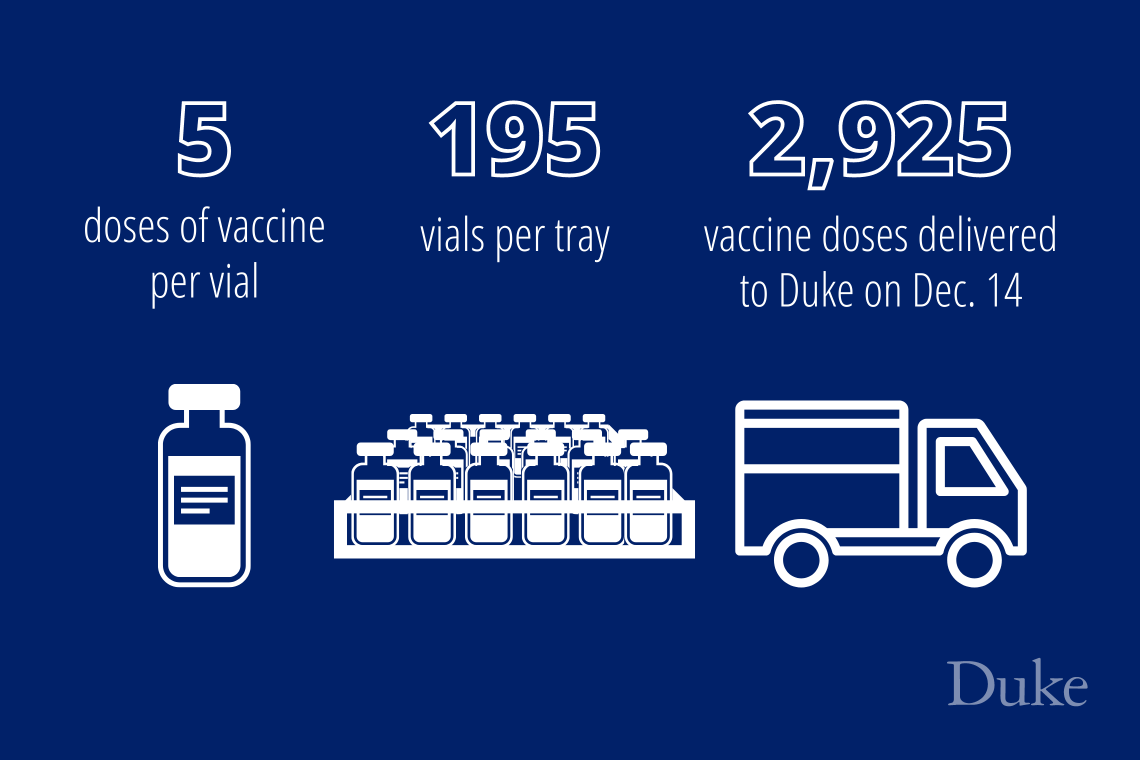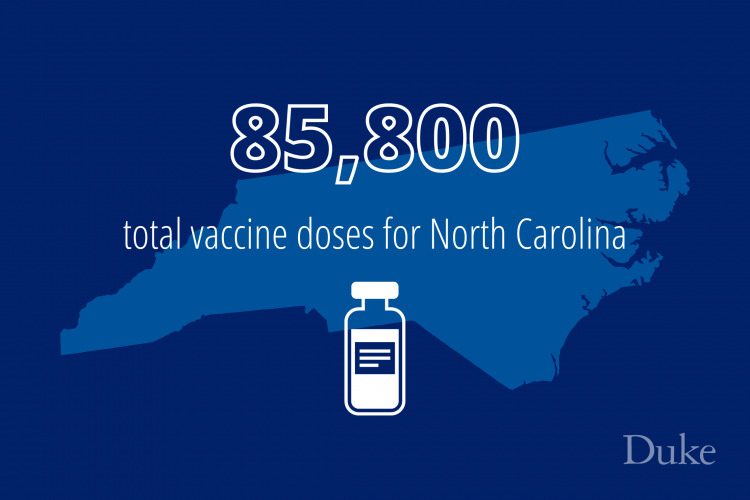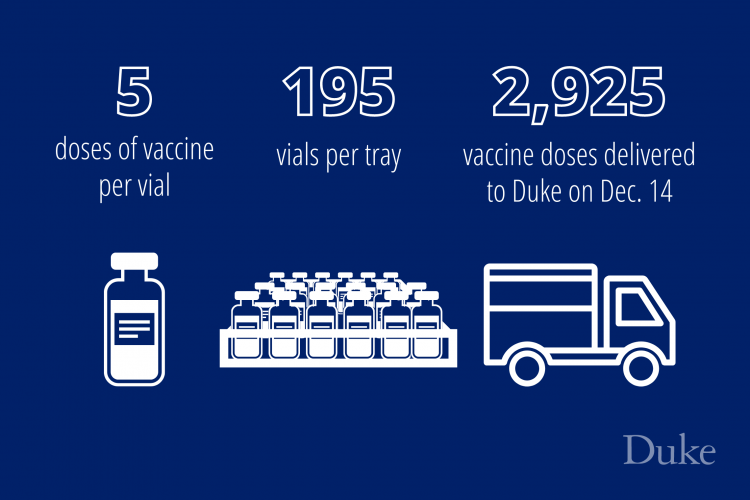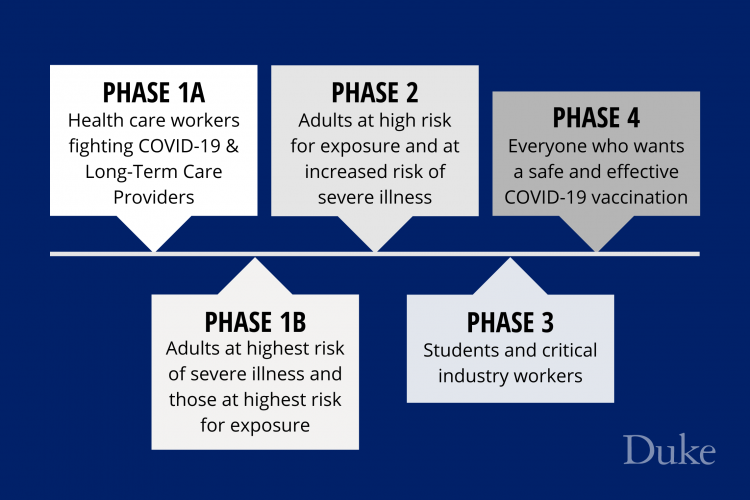Five Things to Know About the Vaccine at Duke

The first shipment of COVID-19 vaccines has arrived at Duke and will be made available for frontline health care workers. Here are five things to know about the vaccine and what this means for Duke and for North Carolina. (For downloadable photos, soundbites, b-roll and other information for use by the media and Duke community, visit https://duke.app.box.com/v/dukecovidvaccine.)
How many vaccines North Carolina has received
North Carolina has currently received 85,800 total vaccine doses. According to the North Carolina Department of Health and Human Services, the state expects to continue to receive shipments of vaccines over the next six months.

How many vaccines Duke has received
The shipment of vaccine from Pfizer that Duke received on Monday, Dec. 14 contained vials with five doses of vaccine each and 195 vials per tray, totalling 2,925 vaccinations. (Each person will require two doses to acquire immunity.)

How the vaccines are being stored
According to vaccine manufacturer Pfizer, the unopened vaccines need to be stored in a deep freezer kept at -70 degrees Celsius (that's -95 Fahrenheit). Special freezers recently acquired by Duke Hospital will be able to maintain these extremely cold temperatures.

How the vaccine was tested
The North Carolina Department of Health and Human Services said that 70,000 people participated in clinical trials and the vaccine was found to be 95 percent effective.

Who is getting the vaccine
Currently, doses of the vaccine are in limited supply. Until the vaccine supply increases, vaccinations will first be administered only to those who are most at risk for exposure to COVID-19. In the first phase, 1A, vaccinations will be given to health care workers fighting COVID-19 and long-term care health workers. The next phase, 1B, vaccinations will be made available for adults who are at high risk of severe illness and those at highest risk of exposure. In Phase 2, vaccinations will be available for adults at high risk of exposure and increased risk of severe illness. Phase 3 will cover students and workers in critical industries. In the final phase, 4, vaccines will be made available for everyone who wants one. For more detailed information, visit the North Carolina Department of Health and Human Services.
